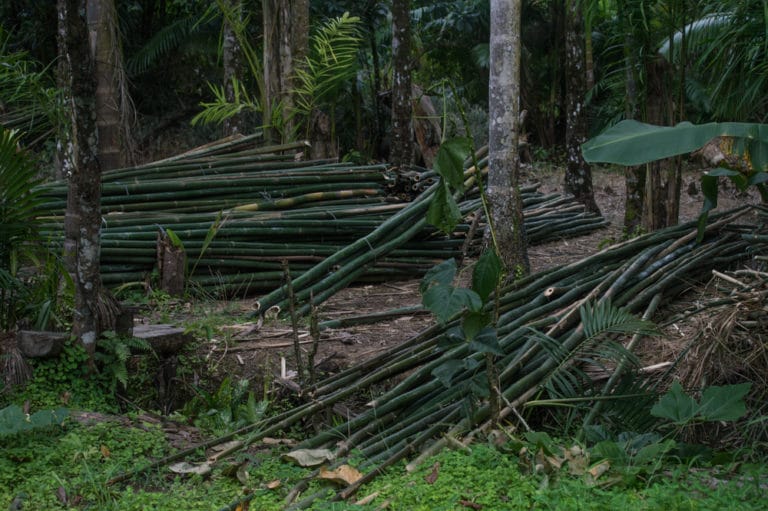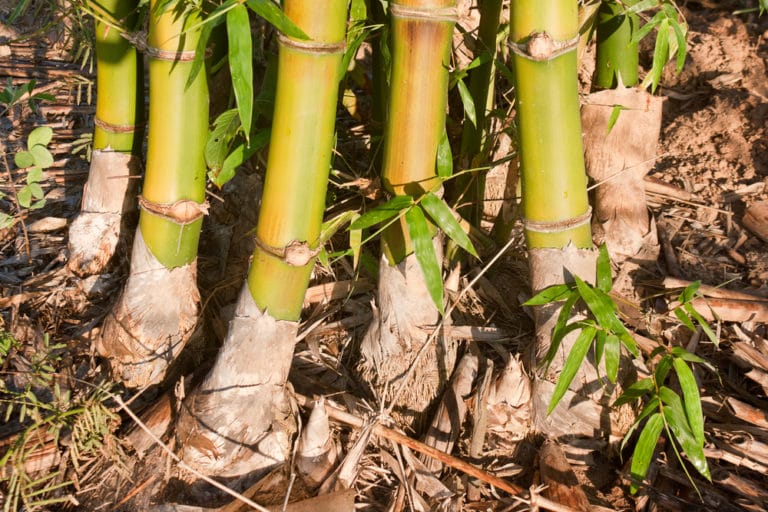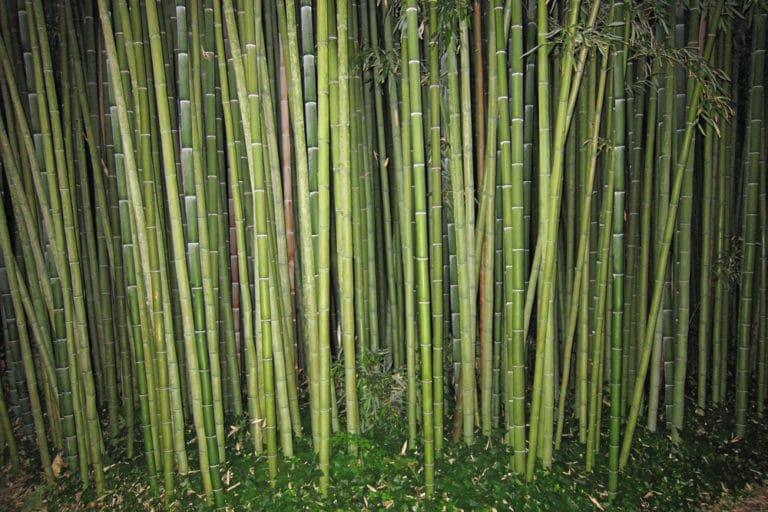Is the battle against bamboo in your backyard a never-ending saga? It doesn't have to be! This comprehensive guide unveils effective strategies to eradicate bamboo and reclaim your space, empowering you to finally achieve victory over this tenacious plant.
One of the simplest methods to begin your bamboo-busting journey involves a readily available household item: boiling water. Pouring boiling water directly onto the bamboo shoots can be a surprisingly effective, albeit labor-intensive, technique. The heat disrupts the plant's cellular structure, potentially leading to its demise. To maximize the impact of this method, it's crucial to dig around the plant, exposing the root system. Regular applications, especially as new growth emerges, can significantly weaken or even kill the plant over time. The key lies in consistency. But is boiling water the ultimate solution?
Beyond the basic technique, understanding the timing is critical. Spring, specifically between March and May, is the optimal time to target bamboo. This is when new culms (shoots) actively emerge, making them vulnerable to your eradication efforts. By focusing your efforts during this period, you can strike at the heart of the plant's growth cycle, maximizing your chances of success. But is it the only time to take action?
- Exploring The Life And Achievements Of Erome Sophia Raim
- Unveiling The Secrets Of Midnight Interview Enigmatic Porn
The cost of professional bamboo removal can vary considerably. It depends on factors such as your location and the extent of the bamboo infestation. On average, homeowners can expect to pay between $425 to $1,850 for professional removal services. This option provides a guaranteed, albeit more expensive, solution. For those seeking a more budget-friendly approach, natural methods can provide a potent weapon in your fight against bamboo.
Heat and light deprivation are your allies in the natural fight against bamboo. Depriving the plant of these essential resources stresses the bamboo, hindering its growth and weakening its resilience. This method, when implemented consistently, can be a powerful way to reduce its impact.
| Category | Details |
|---|---|
| Natural Methods |
|
| Chemical Methods |
|
| Other Methods |
|
| Considerations |
|
| Additional Advice |
|
One of the most accessible, natural weapons in your arsenal is distilled white vinegar. The high acidity of vinegar acts as a potent herbicide, effectively killing new bamboo growth. The key lies in regular application, directly to the emerging shoots, and it can be an effective part of your strategy. Is vinegar, however, a universal solution for all bamboo infestations?
- Unveiling The Life Of Julie Jess A Comprehensive Insight
- Unveiling The Allure The Fascination With Becca Espinoza Nude
If your bamboo grows in clumps, your battle might be a little easier. Clump-forming bamboo, unlike its running counterparts, typically doesn't possess the extensive, underground rhizomes that make complete eradication so challenging. But whats the definitive plan of action? If you want to get rid of bamboo in spring, you must take advantage of new culms only sprouting at that time. Watch out for the tips of asparagus spears, and cut them off at the ground or push them over. They wont grow again. Be consistent; the key to winning the fight is routinely treating your bamboo, no matter the method. But does it also need to include herbicides?
For stubborn bamboo, the use of chemical herbicides becomes a viable option. Herbicides containing glyphosate can be used to kill bamboo, but it's important to apply them carefully and repeat the treatment as needed. As soon as you see new bamboo shoots emerge, a targeted herbicide application can be very effective.
Before you start with the chemicals, assess your garden. Killing bamboo with herbicides may not be safe if you're near other plants in your garden. Always follow the product label carefully. The best approach often involves a combination of tactics, requiring patience and consistency. Cutting, applying herbicides, digging out rhizomes, mowing, or using natural methods such as boiling water or vinegar all these techniques, used strategically, can help you take control of your bamboo and reclaim your garden.
For a more permanent solution, a stump cut and treatment method using a tree-killing herbicide is recommended. By cutting the bamboo as close to the ground as possible, and then treating the remaining stump, you can target the root system directly and potentially kill the entire plant. But what if you only address the shoots?
Spraying herbicide might kill the shoots, but it may not always kill the bamboo roots. If you choose this method, cut the bamboo down to approximately six inches (15 cm) and apply the herbicide directly to the freshly cut surface before the sap can retreat into the rhizome. This targeted approach can enhance the herbicide's effectiveness, potentially destroying the root system, but may require multiple attempts for complete elimination. Also, always check the animals that will eat bamboo, they include pandas, bamboo lemurs and bamboo rats, which eat only bamboo.
Bamboos propensity to spread quickly, driven by its rhizomes, makes it an aggressive invader. To effectively eradicate it, excavating and removing the entire root/rhizome system is often the most definitive, albeit demanding, approach. If the bamboo has significantly spread, the soil removal can be extensive. The technique, while challenging, can be highly effective. But can you kill bamboo by overwatering? It is not advised.
While boiling water can offer temporary control, especially for smaller areas, its rarely a long-term solution for well-established bamboo stands. People make mistakes, and this may be your main mistake when killing bamboo, make sure you dig up the roots and rhizomes, permanently.


